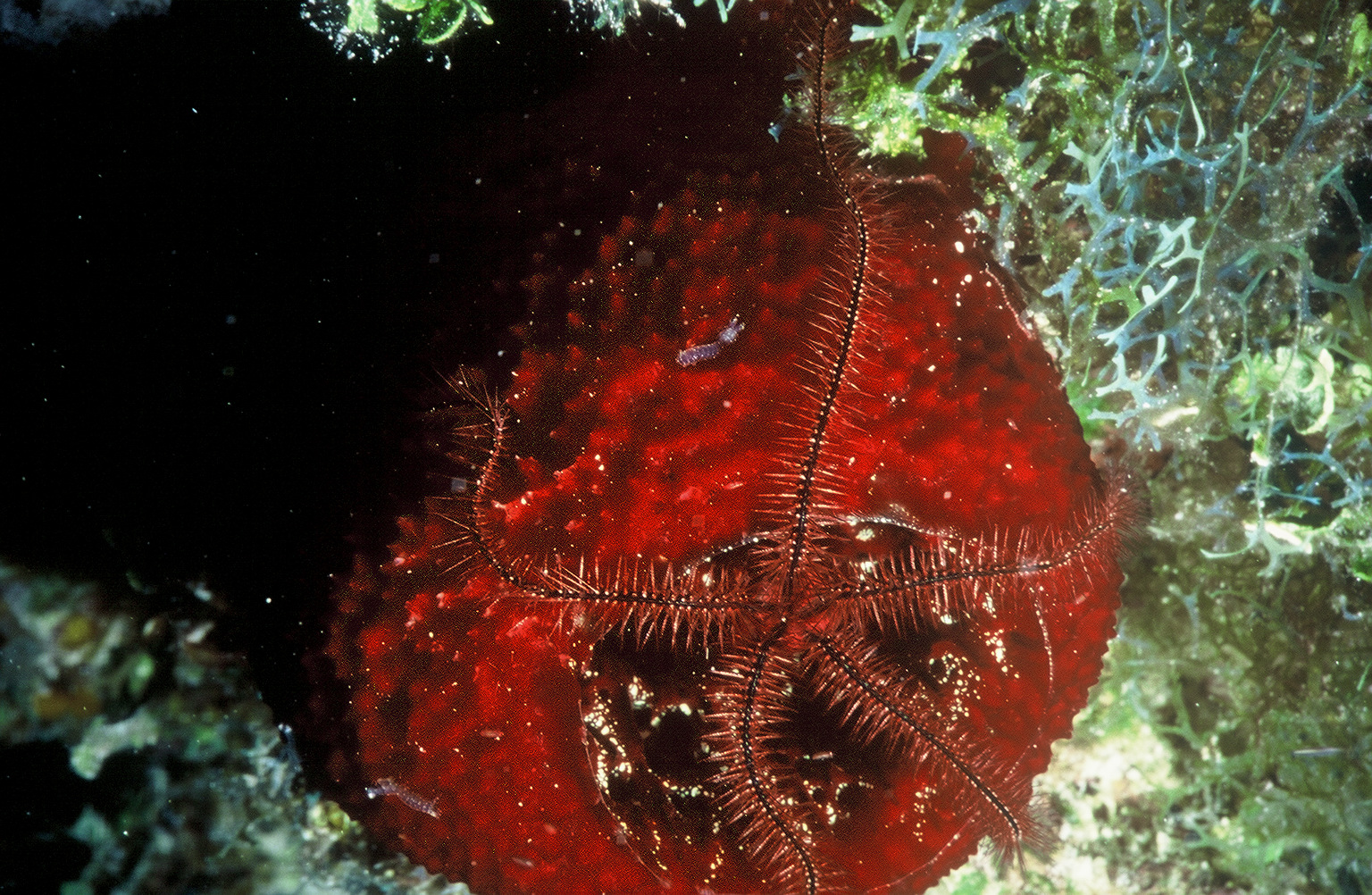

Adapt
 The
Brittle Star is one of many varieties of starfish whose physiology is
well adapted to the conditions in which it lives. The Brittle Star in
this photo is comfortably seated on top of a red tube sponge, but is nearly
invisible to passing predators. Blending in with its surroundings, the
animal is able to extract food from the water without worrying about becoming
some other animal's food.
The
Brittle Star is one of many varieties of starfish whose physiology is
well adapted to the conditions in which it lives. The Brittle Star in
this photo is comfortably seated on top of a red tube sponge, but is nearly
invisible to passing predators. Blending in with its surroundings, the
animal is able to extract food from the water without worrying about becoming
some other animal's food.
The ability to adapt is a requirement for someone pursuing the doctorate, particularly if that person has been down the doctorate road before. Unlike my first trip to the doctorate, where I was relatively clueless about my interests and ultimate objective until very near the end, this voyage to the doctorate began with a very clear set of goals that have not changed dramatically over time. Nevertheless, the voyage has required me to adapt to the rigors and practices of an entirely new discipline, namely, the discipline of Instructional Technology. It has also helped me to adapt the demands of the 21st Century classroom, where the instructor is no longer the source of all knowledge, but rather the guide to a wide variety of sources with which the learner must build his/her own knowledge inventory and apply that knowledge to situations encountered in the real world. Importantly, it has helped me to understand why learning is indeed a lifelong process that does not end when a course of study has ended or a degree received. Like the Brittle Star, I will continue to adapt.
